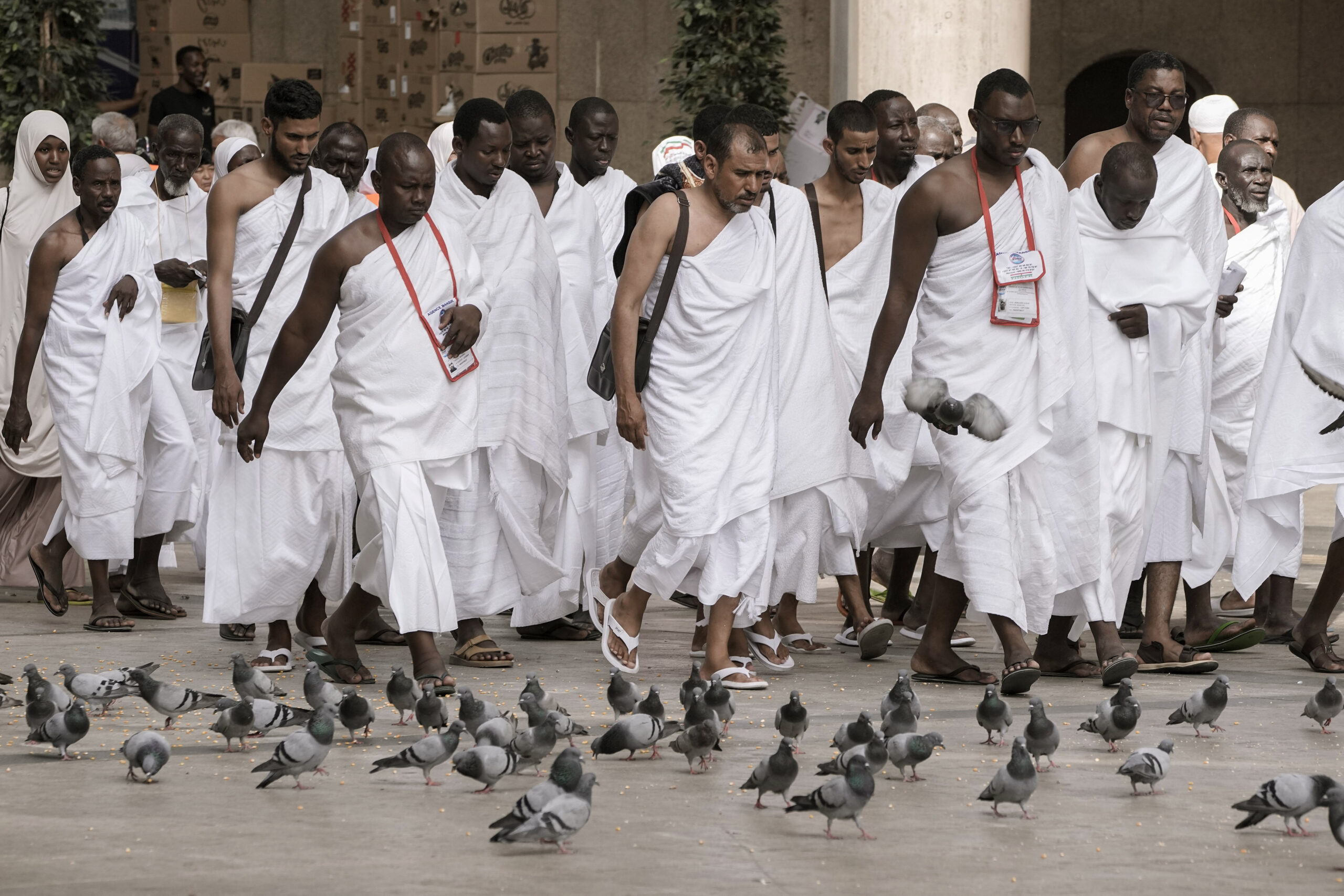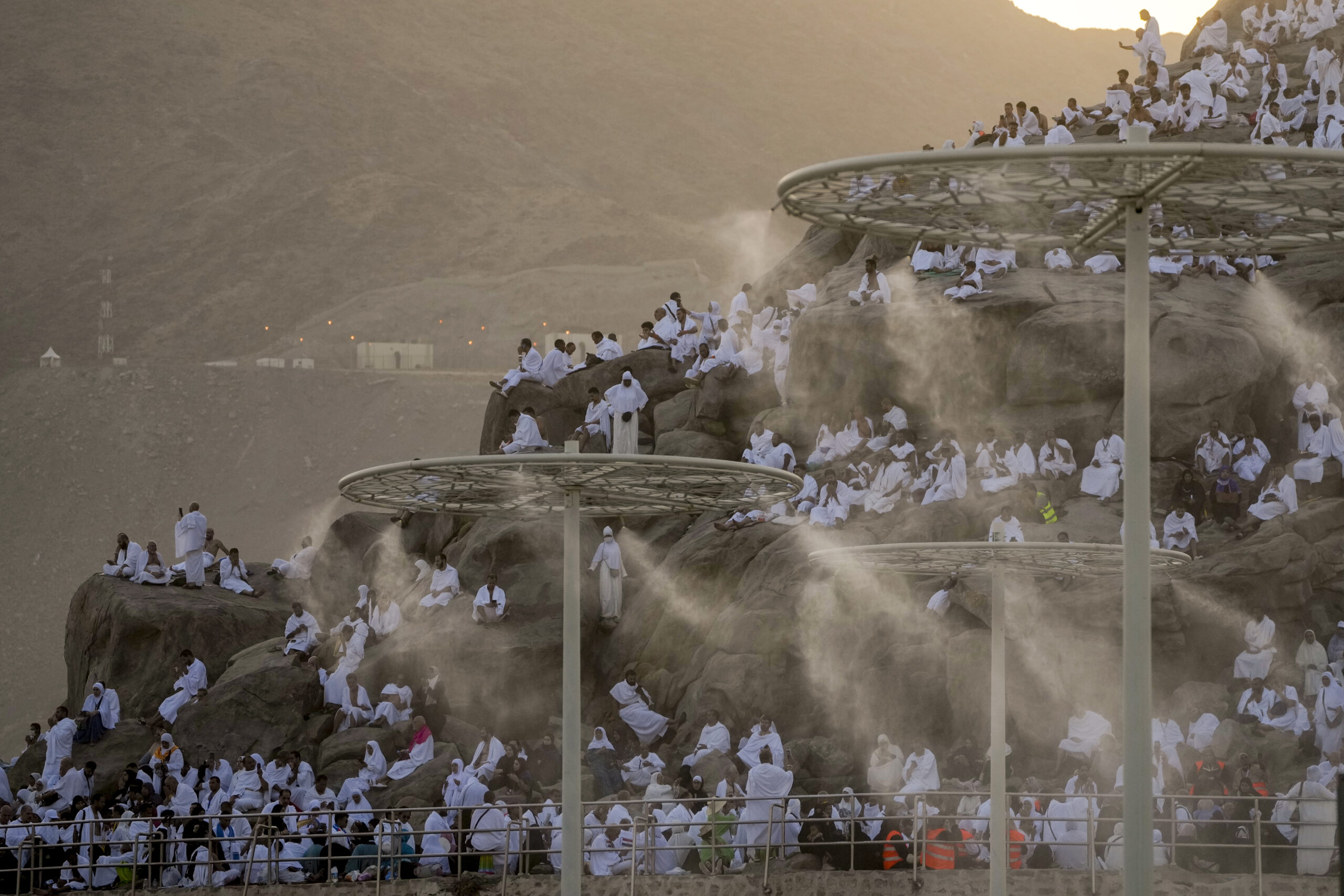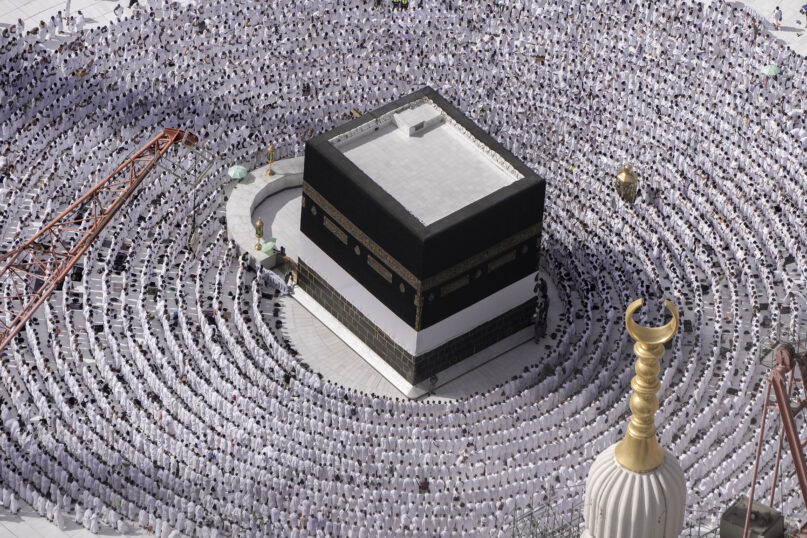(RNS) — Muslims from around the world began the Hajj pilgrimage to Mecca, Saudi Arabia, on Monday (June 26). This year, about 2.6 million pilgrims are expected in the Islamic holy city, as the kingdom has lifted all COVID-19 restrictions on foreign visitors and anticipates a return to pre-pandemic numbers.
After postponing their trip for three years, many American Muslims expected a return to normalcy for this year’s Hajj, but a new online platform, launched in September 2022 in an attempt to streamline the process, has introduced new complications and frustrated many pilgrims.
Created by the Ministry of Hajj and Umrah for European, Australian and American pilgrims, the Nusuk platform promised a more accessible experience, centralizing the many details necessary for Hajj, from visa applications to hotel reservations.The website is part of the Vision 2030 Pilgrim Experience program, which aims to offer a set of “economic and social reforms to open Saudi Arabia to the world.”
But potential pilgrims have described error messages, timeout requests, disappearing packages, unfounded payment denials, and difficulties communicating with customer service.
Nusuk has frustrated Mohammed Imam, an engineer based in Austin, Texas, to the point where he now says he has very little hope of performing Hajj one day. Since February, the 55-year-old man has spent days on the platform, trying to book a package for himself and his wife without success because of the numerous bugs he’s encountered.
“It’s my first time trying to go to Mecca, and if it wasn’t my religious obligation, I would never go through all this,” he said.
When booking through Nusuk, pilgrims have to apply for pilgrimage eligibility first. After being approved, they can choose from the different packages on the website. Depending on budget, packages can include everything from a special Hajj visa and airline tickets to accommodations, transfer between holy sites, medical insurance and meal services.
When the Saudi government launched the platform Imam was excited. Now he denounces a nightmarish process that made his religious duty a “pain in the neck.”

Pilgrims walk beside pigeons outside the Grand Mosque during the annual Hajj pilgrimage in Mecca, Saudi Arabia, June 24, 2023. Muslim pilgrims are converging on Saudi Arabia’s holy city of Mecca for the largest Hajj since the coronavirus pandemic severely curtailed access to one of the Five Pillars of Islam. (AP Photo/Amr Nabil)
Juggling work and the trip organization got difficult after a few weeks, Imam said. He turned on notifications to be alerted as soon as new packages were available on the platform. Sometimes, even after finding the right package, he received an error message saying the payment couldn’t go through. His multiple interactions with customer service were not fruitful because of the language barriers, as most of his correspondents spoke Arabic.
On the “Texas Nusuk Hajj 2023″ Facebook group, he shared his experience with hundreds of other users who have also struggled to navigate the platform.
“Last year I couldn’t go due to age restriction. This year, I couldn’t grab a suitable package as they were sold out. The ones that showed availability couldn’t go through because of website glitches,” commented one woman under a post on the Facebook group.
“This is outrageous, the way they have done it,” Imam said.
Imam and his wife were supposed to travel with friends but, like them, many gave up. About 11,000 American pilgrims fly to Saudi Arabia every year during Hajj season. For Imam, the platform is so poorly designed he believes it will discourage many from planning a trip.
“It’s so difficult to book through Nusuk; it’s like a funnel!” he said.
The Saudi Embassy did not respond to a request for more information on the platform. The Ministry of Hajj and Umrah did not return a request for comment in time for publication.
This new platform has also disrupted business for the 50 American tour providers specializing in Hajj travel planning.
Muhammad Shahidullah runs a travel agency, Madani Hajj Group, in Queens, New York, and has sent hundreds of American pilgrims to Saudi Arabia over the years, assisting every step of the way, from booking flights and hotels to on-the-ground coordination.

Water mist is sprayed on Muslim pilgrims as they pray on the rocky hill known as the Mountain of Mercy, on the Plain of Arafat, during the annual Hajj pilgrimage, near the holy city of Mecca, Saudi Arabia, June 27, 2023. (AP Photo/Amr Nabil)
Last year, Saudi Arabia implemented a quota system per country, limiting the number of Hajj visas to 1,000 per 1 million Muslims in a country. Before the pandemic, about 10,000 Hajj visas were attributed to American citizens. The new quota allocates about 4,000 Hajj visas to the 3.45 million American Muslims. To receive a visa, Hajj hopefuls must prove they can accomplish the journey financially and physically. Priority is also given to those who have never been to Mecca.
Before Saudi Arabia launched its new Nusuk platform, Madani Hajj Group partnered with 12 mosques to organize annual group trips to Mecca. Now that pilgrims are asked to book their trips individually, the mosques have canceled their contracts and Shahidullah is struggling to make ends meet.
“Before, we had a big office and different departments. Now everything is gone because we don’t make money anymore. How can we keep this going?” he said.
For a while, he considered closing the business and reducing staff. But now he has begun advising clients for free on how to use the platform. “It is not really user-friendly,” he explained.
Frequently, clients asked for help regarding the visa application photo requirements. Now that the whole process is digitalized, travelers have to upload pictures directly on the website.
“People don’t always know how to resize properly. They don’t have Photoshop and all these tools,” said Shahidullah, who recognizes he doesn’t always know how to help them either.
He reached out, without success, to the Saudi Consulate in Manhattan and the Ministry of Hajj and Umrah. He hopes that they fix the website next year and give priority to those who registered but couldn’t go this year.
He also shifted his focus to organizing travel for Umrah, the other pilgrimage to Mecca, which is noncompulsory and can be performed throughout the year.
Pilgrimage to Mecca is one of the Five Pillars of Islam that all Muslims are expected to complete within their lifetime. The journey starts in the Great Mosque in Mecca and takes them to Mina and Mount Arafat. For many Muslims, this five- to six-day pilgrimage is a lifetime investment, as most all-inclusive packages exceed $10,000.
In 2020, only a few thousand Saudi pilgrims were allowed to accomplish the five-day pilgrimage. In 2021, few foreign visitors were admitted to Saudi Arabia, and all needed to be vaccinated and to present a negative COVID-19 test. In 2022, only 900,000 pilgrims visited the holy city.





